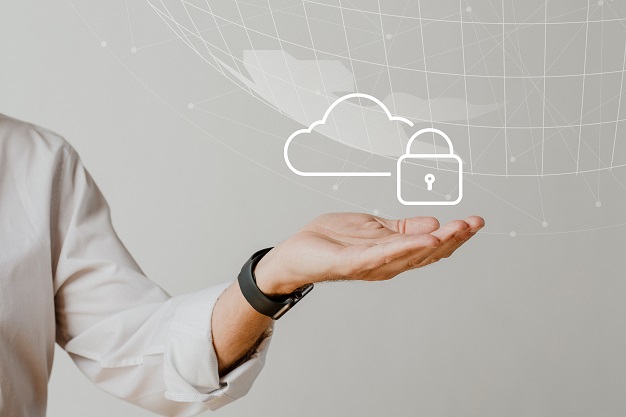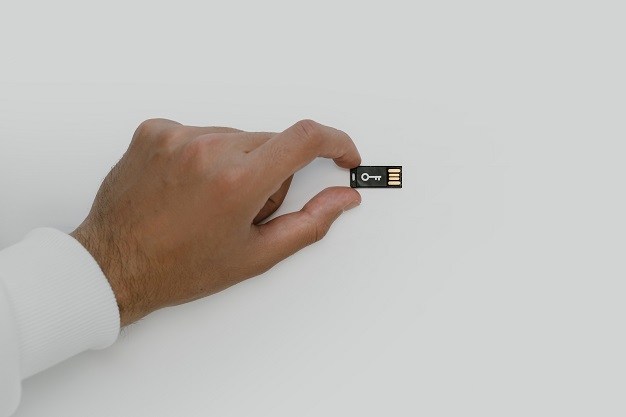
Cyber security is on everyone’s mind. Each person who is using the internet is concerned about cybersecurity. At the same time, businesses have now started using cloud computing for convenient storage and transfer of data. Cloud computing has created hype in the market as it is a relatively new computing technology in the market. However, new things slowly unfold their demerits so as cloud computing. Technology promoters claimed that it is one of the safest ways of computing. Unfortunately, it also involves cyber security threats.
According to a survey, top cybersecurity challenges in the cloud includes 64% of data loss, 62% of data privacy, accidental leakage and compliance breach (39%). That means, there is no surety that if you do cloud computing so your data is well-secured on the network. But, it does not mean that it is 100% exposed to the public.
Let’s understand the key features of cloud cyber security, and how secure is cloud computing?
Key Things To Know About Cloud Cyber Security
1. Security Is Your Responsibility
Cloud computing is relatively secure than traditional computing methods but it still needs your vigilant attitude for your data. You should be careful while sharing access with others. Opening data in the public areas and syncing it with other accounts casually.
If you will not consume your data carefully, no system or technology will ever be able to protect it from cyber threats. It will always be at risk.

2. Cloud Service Providers Are Working To Make It Safer
Currently, the cloud is the most used computing technology in the world. Thus, the big providers such as AWS (Amazon Web Services), Google Cloud Platform and Microsoft Azure, and many along with them are working hard to provide a service platform to the users.
Google Cloud Platform already has its Cloud Security Command Centre where all the scanning to detect vulnerabilities take place. Similarly, other companies have invested huge amounts to make their infrastructures that will offer secure cloud computing.
3. Encryption Works For Cloud
Encryption offers an additional layer of security for your sensitive data. It enables the secure and encrypted transfer of your data from one connection to another.
While choosing a cloud service provider, you need to decide your risk tolerance and check what facilities do your provider offers? Moreover, if you want a safer cloud network for your data, you can use other security protocols such as principles of least privilege that allow companies to meet regulatory policies such as PCI DSS, HIPAA, and GDPR.
Here’s a piece of advice for you, do not rely on the provider for cloud cyber security as we already stated that securing your data is majorly your responsibility.

4. SSH Keys Is For More Security
SSH keys are used to gain access to an encrypted connection between the systems. It is an authentication method that further uses these connections to manage remote systems.
These keys are used for sensitive data that companies or businesses can not afford to lose or leak to the public. Therefore, a key manager should know how & where to store this key so it does not go into the wrong hands.
Also, whenever someone uses this key, they should be fully monitored and analysed to ensure it meets both regulatory and cyber security needs.
Please note: store these keys safe to avoid losing them or getting into the wrong hands.
5. Multi-Factor Authentication To Prevent Cyber Threats
It is a self-explanatory security method that is used almost everywhere to protect data from cyber threats. The use of passwords, OTP authentication, image authentication, fingerprint authentication, etc. provides another layer of security to your data.
Cloud computing work on the networks which makes it prone to be exposed. However, if you use multi-factor authentication for cloud computing, you can avoid such scenarios.
Moreover, if at any stage, the authentication fails, you will get a notification on your registered email address or phone number so that you instantly block the IP address in case you suspect a threat.

6. Insiders Are More Vulnerable
Cloud computing comes with its own security measures. Additionally, when you enable encryption and take other security actions, you make it more secure and less vulnerable to professional hackers.
That means you should keep your cloud network secure from the insiders. Sometimes, the employees share access to the sensitive data on their personal devices to use it for official purposes. Or, share to the outsiders (probably by mistake) that can lead to leakage of the data. Therefore, you need to be more careful sharing data with the insiders than to secure it from the outer world.
7. Cloud Computing Is Expanding
After all these ups & downs, and security glitches of the cloud. It still has a rising market. Do you know why? Because it has the
potential to provide a safer computing network.
As per the Global Security Services Market 2015-2019 report, the cloud computing market is on the rise. Therefore, it is still an appropriate option for businesses to switch.
Conclusion
Indeed, cyber security threats are on the rise, yet cloud computing has given hope to businesses for a secured network. However, there is a myth in everyone’s mind that loud cybersecurity is just the provider’s responsibility. Whereas, the user is solely liable for its cloud computing and the data. Thus, take preventive actions to avoid cloud cyber security threats.
